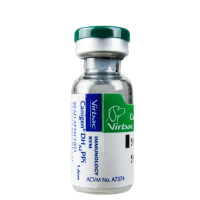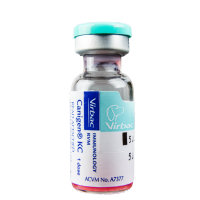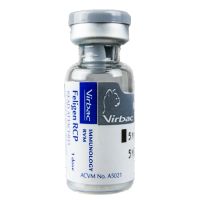
Cat & Dog vaccines: what diseases to protect them from
Vaccinating your dog or cat is a crucial part of responsible pet ownership, offering dual benefits for both your furry friend and the wider community. Just like in humans, pet vaccinations aim to:
-
Protect your pet's health: Vaccinations safeguard your dog or cat against a range of infectious diseases, helping them stay vibrant and healthy throughout their lives.
-
Prevent disease spread: By vaccinating your pet, you help create a barrier against the circulation of disease-causing agents, stopping the spread of illnesses from one animal to another. This is especially important for diseases that can jump from animals to humans, contributing to overall public health.
The more animals that are vaccinated, the lower the incidence of these diseases in the general population. Conversely, a reduction in vaccination rates significantly increases the risk of serious diseases re-emerging. Ensure your pet is protected and contributes to a healthier community!
Vaccines are a cornerstone of preventative pet healthcare, protecting against a range of viruses, bacteria, and parasites. Not all vaccines are the same; some are considered essential, while others are optional, depending on your pet's individual needs.
Determining the appropriate vaccination schedule for your dog or cat requires a personalised approach. Your veterinarian is your best resource for this. They'll consider several key factors to recommend the right vaccines, including:
-
Your pet's lifestyle: Does your pet socialise frequently with other animals, go to dog parks, or spend a lot of time outdoors?
-
Your location: Are certain diseases more prevalent in your geographic area?
Consult with your vet to create a tailored vaccination plan that ensures your pet is protected against the diseases they're most at risk of encountering.
All dogs should be immunised against distemper, contagious hepatitis (also known as Rubarth hepatitis) and parvovirus.
Parvovirus causes acute haemorrhagic gastroenteritis and is highly contagious. This disease causes major epidemics and many puppy deaths. Parvovirus is very resistant in the external environment, which facilitates contagion. This is why all dogs must be vaccinated.
Ensuring your pet maintains strong, effective immunity requires a specific vaccination schedule. During their first year, puppies and kittens typically need several injections to build foundational protection.
Once your pet reaches adulthood, regular booster vaccinations become crucial. These boosters are essential to maintain ongoing protection throughout your pet's life, as immunity can wane over time.
It's vital to follow your vet's recommended vaccination protocol precisely. Adhering to this schedule ensures your pet remains correctly protected against various diseases. Prioritise your pet's health by staying on top of their vaccinations and booster shots!
Over the past few decades, widespread pet vaccination has significantly reduced the incidence of several serious diseases in dogs and cats, making them rare. So, does this mean we can stop vaccinating? Absolutely not!
It's essential to continue vaccinating your pets because without it, these diseases could easily reappear. We must remember that wild and feral animal populations act as natural reservoirs, meaning these diseases are always present in the environment.
By maintaining your pet's vaccination status through a personalised protocol developed with your vet, you play a crucial role in preventing the spread and re-emergence of potentially life-threatening diseases. Your vet is the best resource to advise you on the optimal vaccine protocol for your dog or cat, ensuring their continued health and contributing to the health of the wider community.
Pet vaccination is a key part of your companion's preventative health, performed by your vet during a dedicated consultation. This isn't just about the injection; it's a comprehensive health check designed to ensure your pet is safe to be vaccinated.
During this vital appointment, your vet will conduct a complete health assessment. This thorough examination helps identify any underlying health issues that might make vaccination unsafe or less effective.
For puppies and kittens, these vaccination visits are also a prime opportunity to discuss crucial aspects of their early development. Your vet can provide guidance on growth, training, behaviour, nutrition, parasite control, desexing options (medical or surgical), and hygiene.
For elderly pets, the vaccination consultation evolves into a senior health assessment. This often includes a blood test to evaluate organ function and detect age-related conditions early.
Ultimately, each vaccination appointment is a valuable chance for a privileged exchange between you, your pet, and your vet, ensuring personalised care and addressing all your pet's health needs.
Canine cough (kennel cough) is an infectious tracheobronchitis that affects dogs. The vaccine is recommended for dogs that live in community, that go in kennels, to expositions or to canine clubs. The canine cough is due to several bacteria and viruses including parainfluenza virus.
Leptospirosis is a serious bacterial disease that can also affect humans. Dogs are most often infected in water contaminated with rodent urine. If you have a hunting dog or if you often go to wet areas with your dog, it is essential to have your dog vaccinated against leptospirosis.



